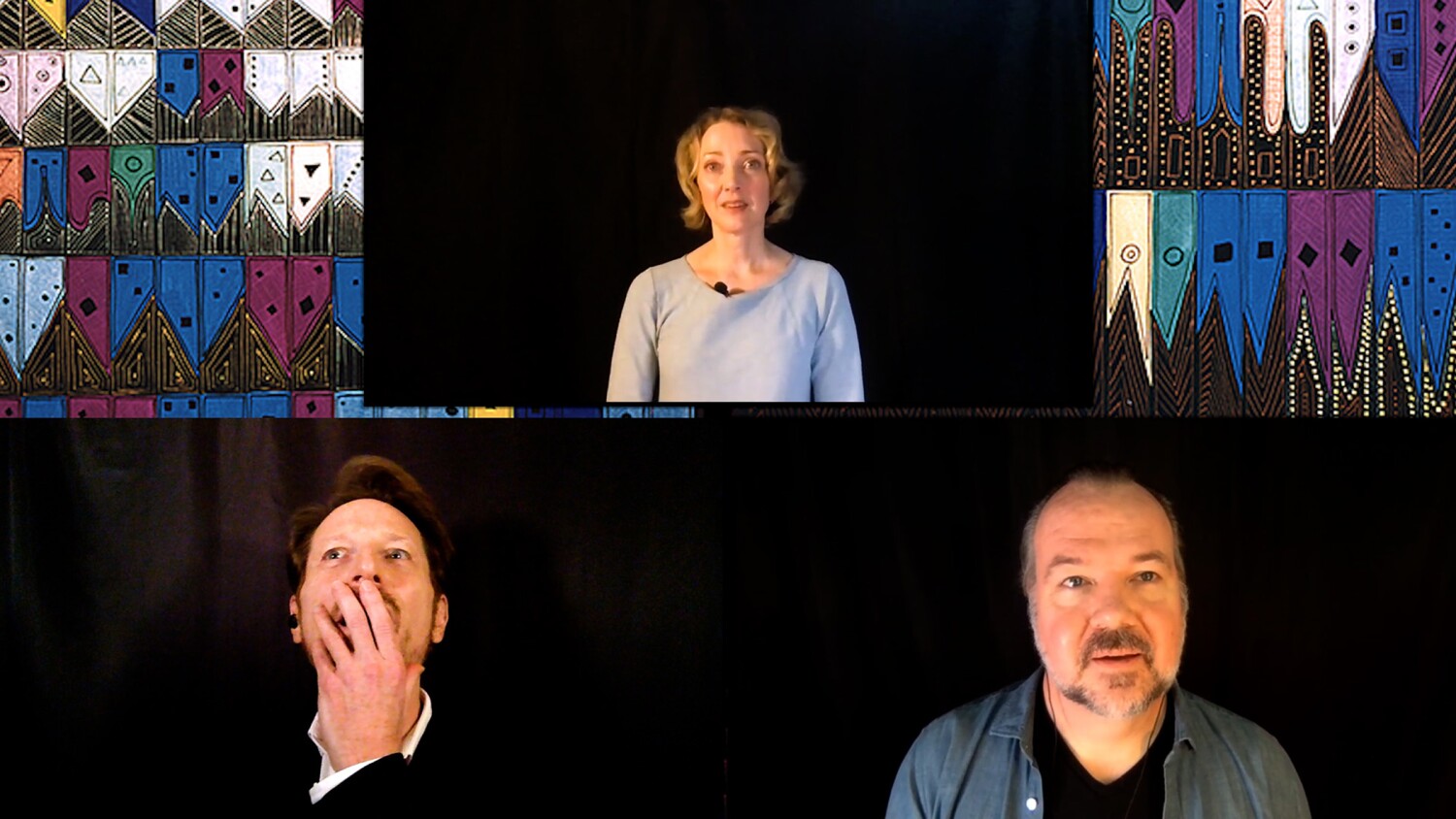
In the new perform “UnRavelled,” author Jake Broder explores two situation research in mind science that echo uncannily throughout time. The French composer Maurice Ravel wrote his greatest recognized piece, “Boléro,” in 1928 at age fifty three. In the 1990s, also at fifty three, an American scientist named Anne Adams abruptly abandoned her profession to paint. In her canvas “Unravelling Boléro,” she obsessively translated Ravel’s notes and rhythms into a visible language all her possess. Equally artists died of the similar scarce mind ailment.
Their tales raise questions that compel neuroscientists, whilst also falling in Broder’s wheelhouse as an actor, musician, composer and playwright intrigued in the mysteries of creative imagination. Just after finding hooked on the Ravel-Adams connection all through a public radio phase, Broder attained out to Adams’ neurologist, Dr. Bruce Miller, director of the Memory and Aging Middle at UC San Francisco. Miller invited Broder to the middle as a checking out artist Broder in transform warmly immortalized Miller as a character in “UnRavelled,” now in a digital output and free to view on need by means of March 30.
The exhibit is filmed pandemic-style, every actor safely and securely enclosed in a different Zoom window. Director Nike Doukas and her video engineers, Bree Pavey and Corwin Evans, deal them like taking part in playing cards in opposition to a black monitor in groupings that, with the assist of narrated stage directions (by Michael Lanahan), establish the various configurations. Wisely, Broder avoids interactions demanding landscapes, props or costumes, telling his story mostly by means of one particular-on-one particular discussions. While Zoom is a notoriously claustrophobic medium, in some sense its limitations perform right here: The characters’ isolation in different containers visually reinforces the psychological distance among the them.
Connection proves difficult for protagonists Anne Adams (Lucy Davenport) and her spouse, Robert (Rob Nagle), prolonged married and emerging from a disaster involving their son. The young man has recovered, but more than Scrabble one particular night, Anne tells Robert she does not intend to go back to perform as she’d planned. Rather, she wants to paint.
With equivalent elements tenderness, harm thoughts and exasperation (a combination Nagle excels at conveying), Robert reminds Anne that she’s not an artist her mediocre portraits of strawberries don’t justify the forfeiture of her income. Anne, whom Davenport portrays as an emotionally self-ample, not to say remote, really like object, fantastic-naturedly agrees but does not improve her intellect. Every working day she receives a very little bit quirkier, right until she is shut up in her studio blasting “Boléro,” leaving Robert to deal by yourself with his be concerned, yearning and existential confusion, not to mention a disheartening job.
In concerning their tense dinners, we fulfill Dr. Miller, who will at some point treat Anne, as he provides a lecture on art and the mind. As played by Leo Marks, Dr. Miller is determine of preternatural erudition, wit and compassion. Devoid of reducing Anne and Robert’s pain, he communicates his enthrallment by the light-weight their experience shines on historical questions: Is there a physical or chemical resource in the mind of artistic inspiration? If art is a symptom of ailment, what is the artist’s part, if any, in its generation?
Ravel has something to contribute to this discussion: “Boléro,” with its insistent repetition, broke radically from his past style, and he afterwards resented its achievements, complaining that it has “no audio in it.” Ravel demonstrates up in “UnRavelled,” played by Conor Duffy, in a a bit cooler shade palette suggesting his classic. He has imaginary discussions with Anne and hangs out in his possess period with his mate Ida (Melissa Greenspan), the ballerina for whom he wrote “Boléro.” These scenes show how intently Ravel’s ailment mirrored Anne’s — frenzied, uncharacteristic creative imagination adopted by aphasia — but because we get the concept early on, and don’t master considerably else about him, Ravel’s subplot threatens to dress in out its welcome.
As the perform progresses, it commences to repeat alone or belabor its details: There is a sense that it wants to go away more to the audience’s creativeness, to evoke instead than spell out connections, and to open out onto a larger vision of human inspiration and wrestle. But it’s gotten trapped in a Zoom conference. The medium allows the content down most at its climax, a bar-by-bar comparison of “Boléro” with “Unravelling Boléro.” On my laptop this juxtaposition had all the grandeur of a PowerPoint presentation. But the strength of the creating and performances served me envision how thrilling it could be in another context.
‘UnRavelled’
What: A digital output by the International Brain Health and fitness Institute centered at Trinity University Dublin and by UC San Francisco and USCF Memory and Aging Middle
When: On need by means of March 30
Where: www.UnRavelledPlay.com
Tickets: Free
Operating time: one hour, 30 minutes





More Stories
The Effect of Digital Technology in the Music Industry
The New Wave of Digital Fabric Printing Technology
Ken Wilber & Integral Philosophy